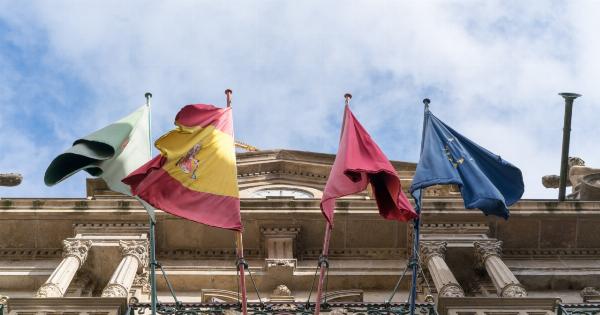IVF (In Vitro Fertilization) treatments have revolutionized the world of assisted reproduction, offering hope to millions of couples struggling with infertility.
The Crown, a critically acclaimed television series on Netflix, has garnered immense popularity for its compelling exploration of the British royal family and its historical events. While these two topics may seem unrelated at first glance, there are surprising parallels between IVF and The Crown that make them a match made in heaven.
The Historical Context
Both IVF and The Crown are deeply rooted in historical contexts. IVF, pioneered by Sir Robert Edwards and Patrick Steptoe in the late 1970s, marked a monumental breakthrough in the field of reproductive medicine.
The Crown, on the other hand, delves into the chronicles of the British monarchy and portrays historical events that have shaped modern society.
Breaking Barriers
IVF and The Crown share a common theme of breaking barriers. For IVF, it was the breakthrough treatment that offered hope to couples struggling with various fertility issues.
The Crown, on the other hand, breaks down barriers in terms of gender roles, societal expectations, and the preservation of tradition versus progress.
Scientific Advancements
IVF represents a remarkable scientific advancement that has transformed the possibilities of human reproduction.
While The Crown focuses more on historical events, it is also a testament to advancements in filmmaking techniques and the ability to recreate past eras with stunning accuracy and detail.
Personal Struggles and Triumphs
IVF is often the result of personal struggles with infertility, representing a journey fraught with emotional highs and lows.
This mirrors the experiences of the characters portrayed in The Crown, who face their own personal struggles while navigating the demands and expectations of their roles in the royal family.
Legacy and Succession
Both IVF and The Crown touch upon the themes of legacy and succession. IVF allows individuals to create a genetic legacy and fulfill their desire to have children even in the face of infertility.
The Crown delves into the complex dynamics of succession within the royal family and the challenges that come with maintaining a historic lineage.
Reproductive Freedom and Autonomy
IVF has undeniably empowered individuals to exercise their reproductive freedom and autonomy. Similarly, The Crown scrutinizes the notions of personal freedom and autonomy within the confines of royal duties and traditions.
Media Influence and Representation
The Crown has had a significant impact on public perception and understanding of the British royal family.
Similarly, IVF has been portrayed in various media outlets, contributing to the understanding and acceptance of assisted reproductive technologies.
Historical Accuracy and Ethical Considerations
Both IVF and The Crown raise ethical considerations and the need for historical accuracy. While IVF has been a game-changer in fertility treatment, it also raises debates about the moral implications of altering the natural process of conception.
The Crown, in its portrayal of historical events, must grapple with the challenge of accurately representing the truth while still creating an engaging narrative.
Inspiring Hope
IVF offers hope and the possibility of starting a family for individuals who may have otherwise given up.
The Crown, through its portrayal of historical individuals and events, inspires hope in the resilience of the human spirit and the power of determination.
Conclusion
IVF and The Crown may seem unrelated, but they share common threads that intertwine them. Both have made significant contributions to their respective fields and have captivated audiences around the world.
The match between IVF and The Crown illuminates the parallels between science, history, personal struggles, and societal expectations. Together, they form a unique combination that fascinates and inspires.




























